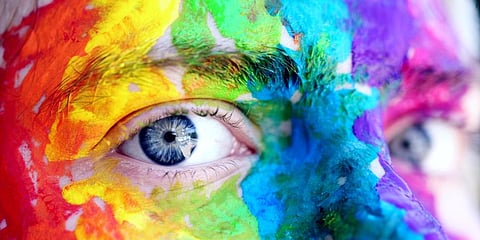

CHENNAI: Growing up, author K Vaishali had always felt a deep sense of homelessness. Being a dyslexic, closeted queer woman, she struggled to find acceptance and a sense of belonging, even in her own household. Around six years ago, when she started to work on her second book, that sense came to the fore, leading her to mould the protagonist of the fiction.
“Article 377 was still law then and I was deeply in the closet. So I didn’t have the agency or the space to write a memoir. Instead, I was writing about a person losing status in life, based on what I was going through. When I came out to my parents, I didn’t get a lot of support. Slowly, I started making the fictional character a lot like myself. When Article 377 was finally struck down, I went into a relatively safe space. I found a few people, including my mentor and editor Arpita Das, who made me feel safe, and I felt the freedom to write about things that I had gone through,” Vaishali says.
Published recently, Homeless: Growing Up Lesbian and Dyslexic in India is a deeply personal account of Vaishali’s journey, which offers a compelling exploration of the intersectionality of her queer identity, ableism, and the societal challenges faced by LGBTQ+ individuals in India.
Being a deeply private person, Vaishali says the challenges she faced in writing Homeless were twofold. While she wanted to tell her story authentically, she also sought to respect the privacy of those who had played a role in her life. “I have to talk about other people who are in my story and I cannot just make everyone look good. I had to be honest, but at the same time respect others’ privacy and not judge them.
Only at certain places have I reflected on why someone did something, just to give readers some historical and cultural context. Otherwise, I’ve tried to be as honest and non-judgemental as possible,” she adds.
One prominent figure in the memoir is Vaishali’s mother, who is portrayed in a light that isn’t always flattering. “She read the book and was very disturbed by it. But she didn’t tell me not to publish it. I took that as her understanding of why it had to be written,” Vaishali shares.
In Bengaluru for a launch, she expressed surprise by the diverse audience that came to listen to her talk. “I had expected mostly young people and queer people to show up, but there were also parents and people from book clubs. Even the people who were already there before the event started listening to me talk and joined in on the conversation. It was good to see different kinds of people actively engaging. I was very happy about that,” she concludes.